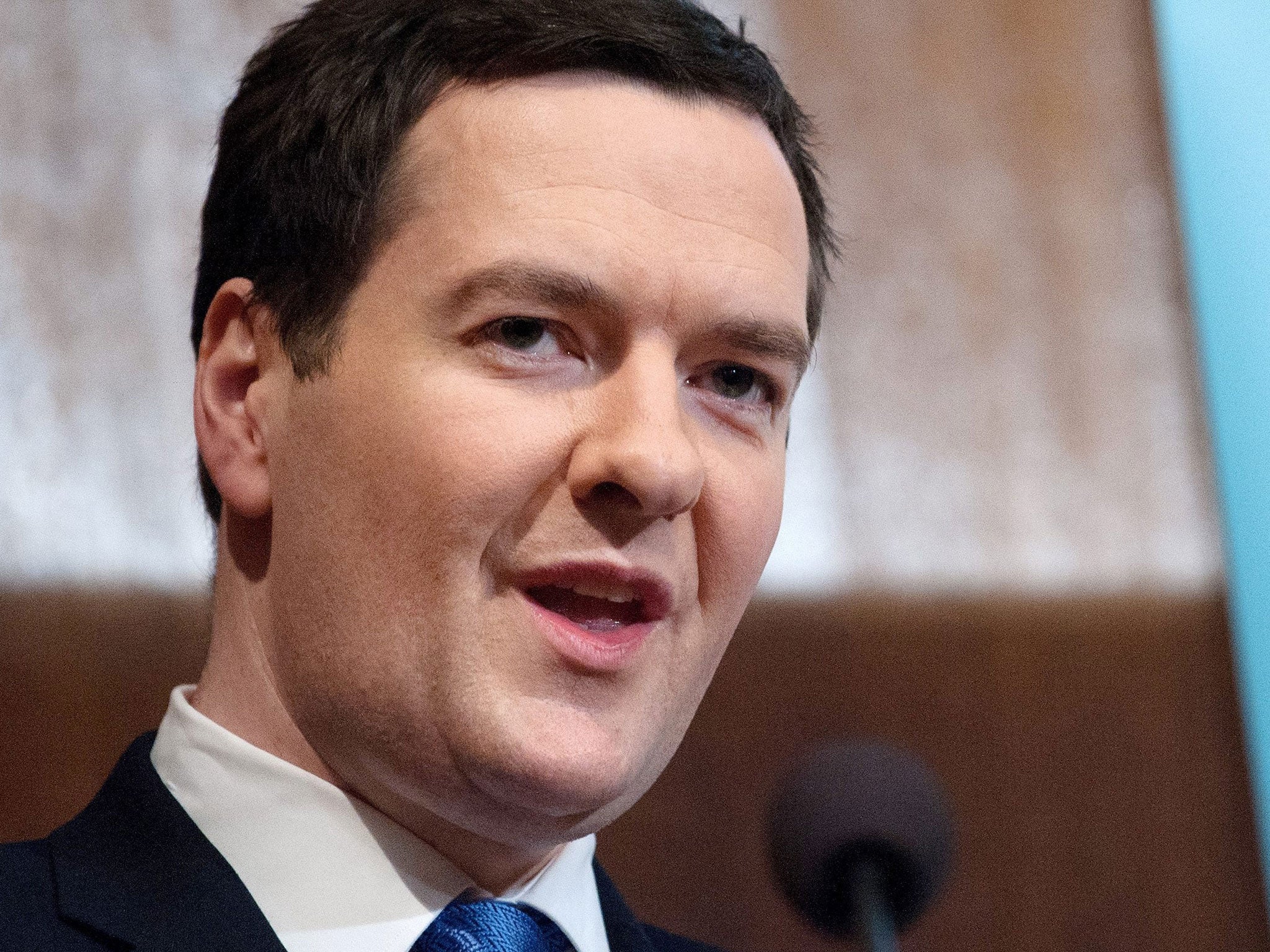Chancellor surprises Vince Cable with call for above-inflation increase to minimum wage
George Osborne pre-empts Ed Miliband speech on economy, but Lib Dems say Treasury ignored repeated calls for increase

George Osborne has attempted to ambush Labour and his Liberal Democrat Coalition partners by signalling that he wants the national minimum wage to increase to £7 an hour.
In a surprising intervention Mr Osborne claimed that a sharp fall in unemployment towards the seven per cent level was proof that he was “fixing the economy” and that a real increase in the minimum wage from the current rate of £6.31 would not harm job creation.
But Liberal Democrat sources said they had been kept in the dark about Mr Osborne’s announcement. They claimed that the Treasury had consistently blocked attempts by the Business Secretary Vince Cable to support an above-inflation rise in the minimum wage to the Low Pay Commission.
The Commission, which includes representatives of business, unions and academia, is due to make its recommendations on the level of the minimum wage and its potential impact on jobs in February. Any upgrade would be expected to take effect in the autumn.
“We were calling for this in September but the Chancellor and his office were dragging their feet,” said a senior Liberal Democrat source.
“In fact they blocked us from asking the Commission to look at restoring the fall in the minimum wage in real terms altogether. While we welcome them round to our point of view it is rather surprising given what they’ve been saying in the past on this,” said the source.
But Mr Osborne told the BBC he now believed Britain could afford an above-inflation increase in the minimum to “restore its real value for people” and “make sure that work always pays. “The exact figure has to be set by the Low Pay Commission, which talks to business, talks to other bodies in our economy,” he said.
The Chancellor continued: “But, if for example, the minimum wage had kept price with inflation, it would be £7 by 2015/16. It’s £6.31 at the moment, so, that’s an increase. I think we can see an above-inflation increase in the minimum wage and do it in a way that actually supports our economy precisely because the economy is recovering and many, many jobs are being created.”
In response to Mr Osborne’s announcement, Mr Cable said: “I’m delighted to have the Chancellor’s endorsement of the position I set out back in September. It’s a useful addition because we are, I think, now essentially saying the same thing.”
Labour suggested Mr Osborne’s announcement was an attempt to try and overshadow a speech on the economy by Ed Miliband on Friday. Sources said it was yet more evidence that the Chancellor was running the economy on the basis of tactical political advantage rather than the national interest.
Mr Osborne’s move was subject to criticism from by industry and employer representatives, however, who warned it could damage jobs.
Join our commenting forum
Join thought-provoking conversations, follow other Independent readers and see their replies
Comments
Bookmark popover
Removed from bookmarks